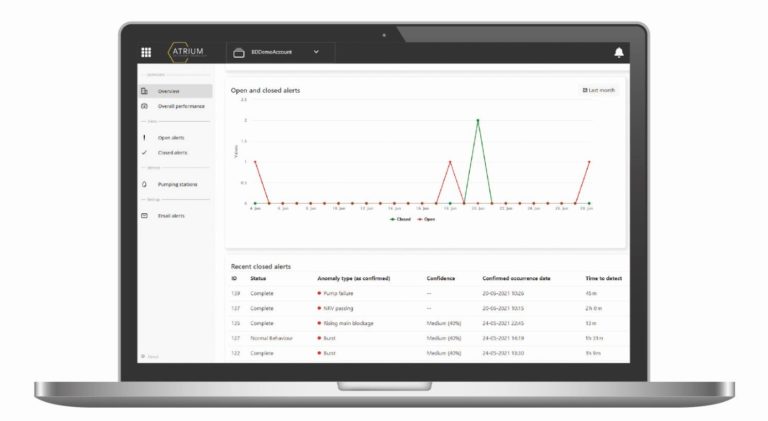Rising to the Sewer Pollution Challenge

Burst Detect tool. (Image source: Ovarro Ltd.)
Environment minister Rebecca Pow has said Ofwat must ensure the water industry is doing more to protect the environment and that water quality was “an absolute priority”.
A government strategic policy statement, published on 2 February 2022, sets out its priorities for the regulator over the next five years and calls for measures to “reduce harm from storm overflows, improve monitoring and reporting of pollution incidents making this more transparent, to tackle run-off from agriculture, and protect the health of our rivers and seas”.
The statement came days after the prosecution of a UK water company in January 2022, following a pollution incident back in 2017. The company was fined £233,000 for the incident, which saw wastewater discharged from a rising main into a watercourse over four days.
Rising mains
Rising main sewers - pressurised pipes that pump wastewater from a pumping station towards a treatment works - are high risk, critical assets, but with many in the UK ageing and becoming more vulnerable to bursts, historic programmes of proactive maintenance and investment may no longer be enough to keep up with the rate of deterioration.
In October 2021, another water company launched a five-day emergency operation, deploying tankers and clean-up teams to limit customer impact, after a burst rising main flooded a residential area.
Given the mounting customer and stakeholder pressure and water companies’ own commitments to cut pollutions, it is unsurprising they are working with the supply chain to develop innovative solutions. One example from Ovarro is BurstDetect, a cloud-based early warning system that was developed in collaboration with UK utilities, in direct response to the urgent challenge to reduce pollutions.
The tool detects rising main bursts with potential to cause pollution incidents. Through a dashboard, it provides an overview of pumping station status and both ongoing and historical events. If data suggests a potential burst, an alert is sent to control rooms often within an hour of occurrence
This ensures users can make swift, informed decisions and quickly allocate resources to reduce environmental impact. Such early action can prevent the escape of sewage and resulting environmental damage, ensuring companies fulfil their environmental obligations and avoid fines, regulatory penalties and prosecutions and long-term reputational damage.
Training and testing approach
BurstDetect can be applied to nearly all pumping stations – even those with just basic pump status monitoring – and requires no additional hardware, with the aim of achieving 100% coverage in networks being monitored. The system accepts data at a range of monitoring frequencies with algorithms being applied to understand and characterise ‘normal’ pumping station behaviour.
This “training and testing” approach to machine learning is becoming increasingly important to water companies, giving them more actionable insight than ever before, utilising data that may not have been fully harnessed otherwise.
With so much available water and wastewater network data, it is just not possible for humans to process and analyse the information themselves. By having the correct technology and processes in place, the stage will be set for utilities to rapidly increase their real-time and predictive capabilities, helping them regain customer and regulatory trust and ensure greater protection of precious watercourses.
Source: Ovarro Ltd.







